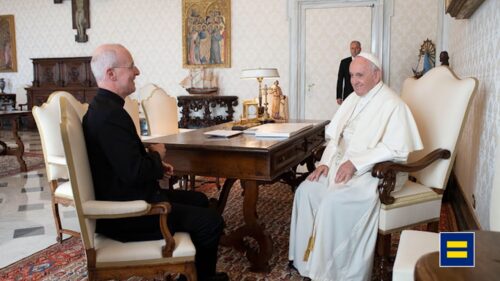“Who are you?” said the Caterpillar to Alice.
“I hardly know, sir…I can’t understand it myself to begin with; and being so many different sizes in a day is very confusing…It all feels very queer to me.”
“You!” said the Caterpillar contemptuously. “Who are you?”
The Caterpillar’s question in Alice in Wonderland is a question we must each answer, especially if things feel “queer” to us. If we are to have joy and meaning in life, we must discover who we are.
Let’s begin by thinking about some passages from the Bible: Adam and Eve were created in God’s own image, and they walked with God in the cool of the evening, like good friends (Gen. 3:8). Psalm 8 says that God created human beings a “little lower than the angels” and crowned us with “glory and honor.” Jesus says that we didn’t choose him; rather, he chose us for lives of abundance (Jn. 10:10).
As we accept what is authentic, the true names dislodge the false labels, which eventually pass away.
Even with these strong biblical foundations, our attempts to answer the question “Who am I?” can become mired in contradiction and self-doubt. Often, the labels that are imposed on us can become part of our hurtful histories; they can crucify us, like insects skewered on a mounting board. Family cultures can label family members as “black sheep,” “clown,” “underachiever” or “spoiled brat.” Social cultures impose labels like “criminal,” “homeless,” “old,” “nerd” and others far worse. Church cultures impose labels like “sinner,” “disordered,” “in dissent” and others.
Our authentic selves emerge gradually, as we learn to name what is true about ourselves. As we accept what is authentic, the true names dislodge the false labels, which eventually pass away.
Naming is quite different from labeling. In the Book of Genesis, Jacob wrestled all night with an unknown figure. In the morning, the figure said to him, “You shall no longer be called Jacob but Israel…And [the figure] blessed him. So Jacob called the place Peniel, meaning, the face of God, saying, for I have seen God face to face, and yet my life is preserved” (Gen. 32:24-32).
Jacob named this important place Peniel to honor his experience. We, too, must name our experiences in ways that identify and honor who we are in our uniqueness and particularity. As we do so, with the help of God’s grace, we contribute yet additional tiles to the mosaic that portrays who we really are, a mosaic visible to the whole world.
As we name and become our authentic selves, God gives us a new joy and new confidence.
This process requires time, effort, community and, most of all, God’s abiding love. The human personality is kaleidoscopic in its complexity, and so the process of self-acceptance is harder than it looks. A man could say, “I am gay” in such a way that the label is a condemnation, or he could say, “I am gay” as a naming moment of honoring and self-affirmation. A woman could say, “I am lesbian” in the same ways.
As we name and become our authentic selves, God gives us a new joy and a new confidence, so that we can take on the hard work of bringing new life to our world. And as we become our authentic selves, we are able to live out more fully the Gospel commands:
- Love your enemies. But we can’t do this without first loving ourselves, which we do, in part, by naming the experiences of God’s love for us.
- Do good to those who hate you. Yes. We must come to know that we are all anointed by God.
- Bless those who curse you and pray for those who mistreat you. But how? By being merciful to others, and by being merciful to ourselves, as God is.
- Stop judging others. But first you have to stop judging yourself.
- Stop condemning others. First, you have to stop condemning yourself. God does not condemn you. Why would you?
- Forgive others. That includes forgiving yourself, as God surely does.
As we become our authentic selves more and more, we are able to live out more fully the Gospel commands.
As is often the case, humor can helps us see what is true. Some years ago, Judith Martin, the syndicated columnist known as Miss Manners, was asked in a letter, “What should I say when I am introduced to a homosexual ‘couple?'” Her answer: “How do you do? How do you do?”
So, if you confront the Caterpillar, who demands to know who you are, be courteous, as Alice was; but also be clear-sighted where she was confused, because you have had the experience of God’s love.
And you know who you are.




